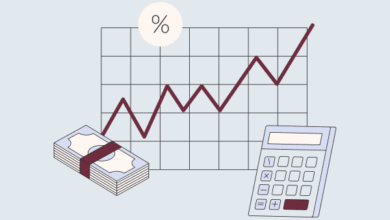SentinelOne Soars: Could Palo Alto Networks Be Ready To Strike A $7 Billion Cybersecurity Deal?

SentinelOne’s (NASDAQ:S) stock spiked nearly 18% before paring gains following reports from Israeli outlets Calcalist and Globes suggesting that Palo Alto Networks (NASDAQ:PANW) may be in advanced discussions to acquire the AI-driven cybersecurity firm. Though both companies declined to comment on market speculation, investors are abuzz with the potential implications of such a deal, rumored to be valued around $7 billion. The timing is notable—SentinelOne just posted strong first-quarter results for FY2026, including 23% year-over-year revenue growth and record 20% free cash flow margin. Meanwhile, Palo Alto Networks, with a market cap of approximately $131 billion, continues expanding aggressively into AI-powered security and integrated platform solutions. The market’s reaction reflects expectations that this acquisition could supercharge Palo Alto’s leadership in endpoint, cloud, and AI-based cybersecurity. But why is Palo Alto targeting SentinelOne today? Also, what could a combination of the 2 companies could mean for the cybersecurity landscape? Let us dig deeper and find out!
SentinelOne’s Platform Strength In AI-Driven Cybersecurity
SentinelOne’s edge lies in its AI-first approach to cybersecurity, most notably through its Singularity platform, which unifies endpoint, cloud, identity, and data protection under an autonomous security architecture. Its Q1 FY2026 performance highlighted triple-digit growth in Purple AI bookings and a 25% AI subscription attach rate. With its newly introduced Singularity Cloud Security suite and FedRAMP High authorizations for core AI modules like Purple and CNAPP, SentinelOne is positioning itself as a full-spectrum player in the AI-infused cybersecurity arena. The company also launched Athena, a next-gen evolution of its Purple AI agent, offering autonomous triage and hyperautomation capabilities. These developments align with industry trends where real-time, autonomous, and AI-native solutions are rapidly replacing legacy SIEM and endpoint tools. For Palo Alto Networks, SentinelOne offers a turnkey entry into fully autonomous AI security, a capability that complements but extends beyond its current Cortex XDR and Prisma Cloud offerings. The synergy could help Palo Alto consolidate its leadership in AI-driven security operations, especially as demand for real-time threat detection and automated response continues to surge across both public and private sector clients.
Strategic Expansion Into Cloud, Data, & SIEM Markets
Beyond its endpoint strengths, SentinelOne is gaining significant traction in cloud security and SIEM—two fast-growing adjacencies that Palo Alto is aggressively targeting. SentinelOne’s Data Solutions crossed $100 million in ARR in Q1, and its AI-native SIEM platform is being adopted by large enterprises to replace or augment high-cost, legacy systems like Splunk. The company is actively displacing legacy vendors by offering integrated, AI-based cloud detection, posture management, and data analytics capabilities, particularly appealing in environments with complex multi-cloud deployments. Additionally, its ability to connect with third-party data sources without requiring full data migration provides customers flexibility during transitions. For Palo Alto, which is also scaling its Cortex XSIAM and Prisma Cloud offerings, SentinelOne’s cloud and SIEM traction offers a high-growth bolt-on opportunity. The overlap also creates potential for cost synergies, streamlined R&D integration, and accelerated time-to-market for next-gen SecOps platforms. SentinelOne’s strength in delivering both data lake capabilities and agentic AI logic could enhance Palo Alto’s existing cloud-native and automation roadmap, offering unified visibility and faster time-to-response across enterprise security stacks.
Federal Authorization & Public Sector Momentum
SentinelOne has made significant inroads into the U.S. federal cybersecurity space—an area of growing importance for security vendors amid increasing cyber threats to national infrastructure. The company has achieved FedRAMP High authorizations for its Endpoint, AI SIEM, Purple AI, and CNAPP offerings, making it uniquely positioned among next-gen vendors to compete for top-tier federal contracts. It recently closed a seven-figure deal with a federal agency in Q2 and is actively collaborating with federal, state, and local institutions. These achievements provide a key competitive differentiator, as public sector clients require the highest levels of compliance and operational maturity. For Palo Alto Networks, whose products are already widely used in the government sector, the acquisition would offer complementary FedRAMP-certified capabilities in AI and cloud security. SentinelOne’s presence would strengthen Palo Alto’s offering in federal deal pipelines while potentially unlocking synergies in procurement, channel relationships, and compliance infrastructure. However, both companies would need to navigate the operational complexities and scrutiny that accompany large federal deployments, particularly around integrations and continued support for mission-critical environments.
Financial Discipline & Operational Scalability
One of the more understated drivers behind SentinelOne’s appeal is its recent operational turnaround. The company posted its fourth consecutive quarter of positive net income, delivered an industry-leading 79% gross margin, and achieved a 20% free cash flow margin in Q1 FY2026. Its remaining performance obligations rose 33% year-over-year to $1.2 billion, and average deal size increased, driven by expanded platform adoption. Importantly, 50% of its quarterly business continues to come from new customers, showing it is not reliant solely on upselling its installed base. SentinelOne is also optimizing its cost structure—cutting non-core units like deception technologies—and has authorized a $200 million share repurchase program, reflecting its confidence in long-term value creation. For Palo Alto Networks, which has historically favored acquisitions of fast-scaling but financially disciplined companies, SentinelOne presents a unique opportunity to add a profitable, scalable business that is still in the early stages of platform monetization. The company’s platform shift from a product-centric to a modular AI-driven sales approach may further accelerate ARR growth and operational efficiency in future quarters. However, execution risk remains, especially as it balances transformation with macro headwinds in enterprise spending.
Final Thoughts

Source: Yahoo Finance
We can see a notable spike in SentinelOne’s stock price after the rumors around Palo Alto’s interest in acquiring the company started circulating in the market. The timing of this interest could not have been better from a valuation standpoint as SentinelOne has seen significant multiple compression across EV/Revenue and EV/EBITDA, making it a more palatable acquisition in today’s market compared to a year ago. Apart from the relatively cheaper valuation, SentinelOne’s federal authorizations, financial discipline, and differentiated agentic AI capabilities offer Palo Alto a pathway to accelerate its ambition of becoming a unified AI security leader. While the companies have not confirmed any ongoing talks, we believe that there is a decent chance the Palo Alto Networks–SentinelOne combination could work out and such a pairing could have a solid impact on the cybersecurity landscape in the long term.




